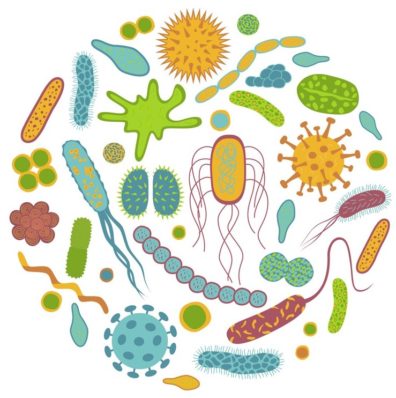Welcome to the Biocultural Anthropology Lab
 Courtney Meehan, PhD
Courtney Meehan, PhD
Professor of Anthropology
Associate Dean, Research & Graduate Studies
College of Arts and Sciences
Health Equity Research Center Faculty Fellow
RESEARCH OVERVIEW
Biocultural anthropological studies on maternal-infant health
My research focuses on maternal-child health, human milk composition, and the evolution of human childhood. Specifically, I am interested in understanding how evolution, culture, behavior, and biology interact and influence maternal-child health. My current research is focused on understanding relationships between 1) cannabis use during lactation, human milk composition, and child development; 2) social and environmental factors associated with human microbiomes and health; and 3) social and environmental factors associated with parental caregiving patterns. Additional projects explore SARS-CoV-2 and human milk, human milk immune factors, human cooperative childcare, and child growth and development. My research is transdisciplinary and has occurred at longitudinal research sites in sub-Saharan Africa (Central African Republic and Ethiopia), locally (WA and Idaho), nationally, and via multi-site international projects, spanning North and South America, Europe, and Africa.
CURRENT PROJECTS
 Cannabis, Human Milk Composition, & Development
Cannabis, Human Milk Composition, & Development
Despite expanding cannabis legalization and that cannabis is commonly used in the prenatal and postnatal periods, little is known about factors influencing cannabinoid concentrations in milk or in the infant. We are currently conducting a study examining cannabinoid pharmacokinetics in human milk and infant urine and whether concentrations are or are not associated with developmental outcomes.
 COVID19.and.Infant.Feeding
COVID19.and.Infant.Feeding
We undertook a longitudinal study on COVID-19 positive women examining breast milk composition in breastfeeding mothers and maternal-infant health outcomes in breastfeeding and non-breastfeeding dyads. Data garnered is helping to inform national and international guidance for infant feeding during this pandemic. If you are interested in learning more, please visit wsu.edu/covid-19-infant-feeding.
 Human.Milk.Composition and Maternal Infant Microbiomes
Human.Milk.Composition and Maternal Infant Microbiomes
We are also studying the behavioral, genetic, and environmental factors related to human milk composition and maternal-infant microbiomes. We explore how breastmilk and maternal-infant microbiomes vary globally and how our environments and behaviors relate to microbial diversity and composition. I collaborate with an interdisciplinary team comprised of biological and cultural anthropologists, lactation physiologists, nutritionists, microbiologists, and computational biologists. Research has been conducted in the Central African Republic, Ethiopia, Kenya, The Gambia, Ghana, Sweden, Spain, Peru, and the United States.

Parental.Investment and Human Cooperative Child Rearing (non-maternal caregiving)
My research on child development and human cooperative breeding is focused on understanding the role of parents and alloparents in children’s social and emotional development and the relationships between cooperative breeding and human reproductive and behavioral strategies. I investigate who cares for children cross-culturally, the influence of socioecology on parental and alloparental investment, the role and influence of caregivers on children’s attachment relationship, and the influence of caregivers on children’s growth and nutritional status. This research is being carried out in both Central and East Africa among hunter-gatherers, horticulturalists and agro-pastoralists and in the US.
